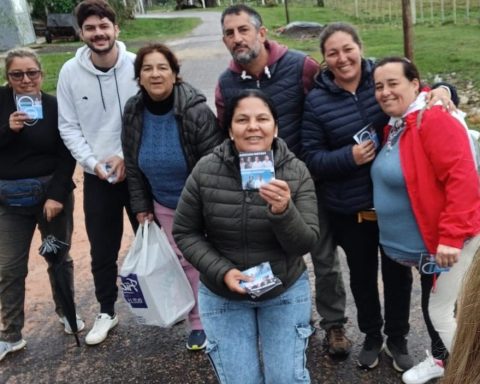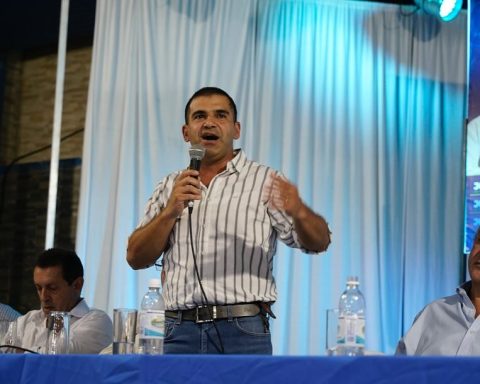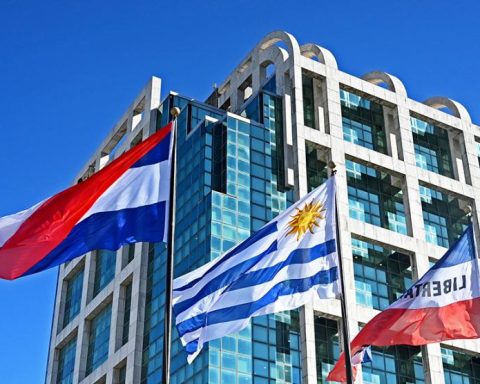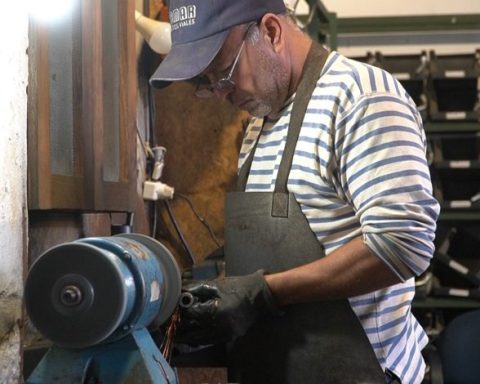The director of the National Party in Ancap, Richard Charamelostated that the workers of the portland area they will be able to continue in the new company, opt for incentivized withdrawals or even move to other areas within the company if the incorporation of a private person to this business is materialized. “They are going to look for all the possibilities so that each one adapts to what suits them best,” pointed. He also referred to the use of the Import Parity Price (PPI) to set fuel rates. “The PPI clarified every cost, every item. He made people pay what was fair and necessary, and not pay overprices as they have been paid for a long time, ”he said. What follows is a summary of the interview that Charamelo gave to The Observer.
The process to incorporate a private partner to the Portland business is underway. What will happen to the officials in that area? (About 300 are public workers and 150 are hired by companies that work for the entity) What situation will they be in once the partner’s arrival is finalized?
We must separate between three types of officials. There are officials who are in the public service and they are going to be respected. And there are the outsourcing officials, some of whom have been there for more than 20 years, who are also going to seek solutions. Then there are contracts with companies, many of which will continue working. That goes in the agreement that they make with the operator that may come. That is to say, two of the three types of officials have no problem, the public and the outsourced, who in the long run have an acquired right. Today we can say that all those who have a right or an obligation with Ancap will be considered. We can say that no one is going to be stranded because even those who do not have the right, but who work in the company with Ancap will have a negotiation, because perhaps within the specifications it is stipulated that companies that maintain workers be hired or have priority. We give you the peace of mind of taking care of everything that is the responsibility of Ancap in what has to do with the labor source.
The problem here has been more ideological, philosophical, than the problem that the workers may or may not have. Today I would not even give five minutes to discuss whether the workers are going to be contemplated or not. They are going to be contemplated with the new company, with important incentivized withdrawals for those who want, distributing them in other areas or being left to order as happened at the time with El Espinillar when there were people who never worked again and who were left receiving salary. There will be a lot of situations. Today it would be cheaper to send them all home and pay their salaries. This year we are losing about US$12 million more in the Portland business. It would be impossible not to be able to relocate them in a company that is at an all-time low with just over 2,000 workers. They will look for all the possibilities so that each one adapts to what suits them best. The personal issue is not and will not be a problem in the event that it ends up reaching an association with a private party. Labor sources linked to Ancap are not at risk.
What evaluation do you make of the Import Parity Price (PPI) mechanism that was incorporated more than a year ago to determine fuel prices?
I think that the PPI was very useful within the company, because what it did was update the company, adapt the company to having a virtual competitor. And trying to get the company to meet certain parameters, because that PPI is a competitor, even if it is on paper. Ursea puts it taking as a reference costs that could be the same as any operator who wanted to do the same as Ancap. Although Ancap continues to be a monopoly company, unlike before, what the PPI did is that you have to take care of every peso and try to grow the company to be able to reach the figures that the PPI marks in that equation, both in logistics , in supply, in costs, in mixes.
The PPI clarified every cost, every item. And obviously what he did was make people pay what was fair and necessary, and not pay premiums as was paid for a long time, where the costs and premiums were set by the Directory or the government of the time. If a PPI had been applied in the other periods, people would not have paid US$600 million, an extra US$800 million that they paid for not having a virtual competitor, and because ultimately Ancap as a monopolistic company set prices and rates. The PPI facilitates transparency. Perhaps at a time like the one when the PPI was applied coming out of a pandemic or in the midst of a pandemic, and where a war is coming, the PPI is also complicating because people and part of the chain are waiting to see if the price goes up or down. . Now that there is some stability, there are no major problems because prices have fallen or have remained stable, and they have not risen in the last four or five months. The PPI is a complicated system, especially when there is a lot of volatility and in a system like ours where we are price takers and we don’t have a gram of raw material.
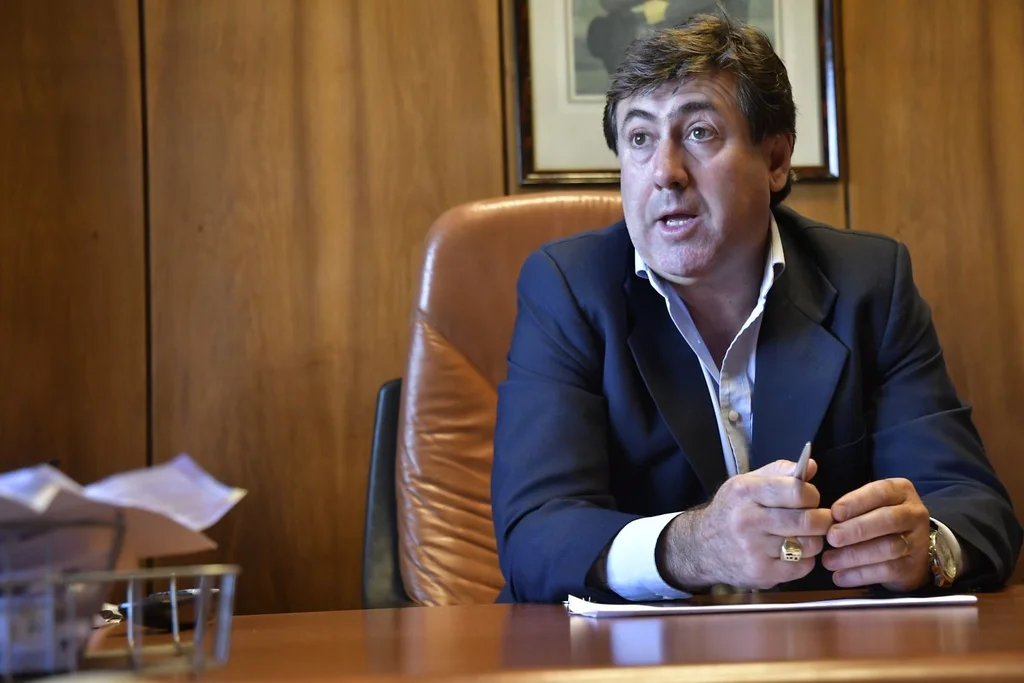
Diego Battiste
How do you define the moment of the company?
Cap is very good. The company has grown and is today in a moment of extraordinary competition. Today, thanks to refining, we have been able to attenuate the decibels of the fluctuation that we had in the fuel. In fact, thanks to the refining margins that we have had and others, it is more business to have the refinery than to import.
In the secondary distribution chain, practically nothing has been touched. What vision do you have?
Nothing has been touched on the distribution chain, but there are some issues there that will surely occur. In a regulated market like ours, touching everything is not easy at a time of volatility. There remains what has to do with the outside of the distribution chain. A part of that is already in competition today, because although today the margins for stations and fuels are stipulated, except for gasoline, the rest is in competition. Today there is competition in diesel, where what is stipulated is not what the parking lot charges, for example. The margins are fluctuating, diesel oil for large companies, for large consumers depends on the negotiation that is done with the station and with the label. The gasoline is what is becoming more watertight. There is already an important change, but it is true that the attack was not finished and it was not regulated as the first part was regulated.
Changes were made regarding the use of union hours that you considered to be in excess for the amount. Another aspect that he had mentioned some time ago was the need to review the items that are paid to officials by filing or season and that did not have a ceiling. Could you move forward?
Actions were taken. We had Legal give us a report. Here it is said that those games that occurred for a long time already generate a right and that you cannot innovate by withdrawing the right. What is being done is to maintain the game and add it to a fixed amount. In turn, the new workers are directly paid with an amount that is totally lower and that is based on the increase that occurs in season, and not arbitrary as it was before, when they received up to 40% of the salary, it was a plate It will be a fixed amount that will never exceed a 10% increase per season. What will not be possible is to lead everyone to what we want because we would already enter into a matter of lawsuits and we would surely lose them because we consider that they are acquired rights. This is a public company. Everything here is brave, it’s frustrating.
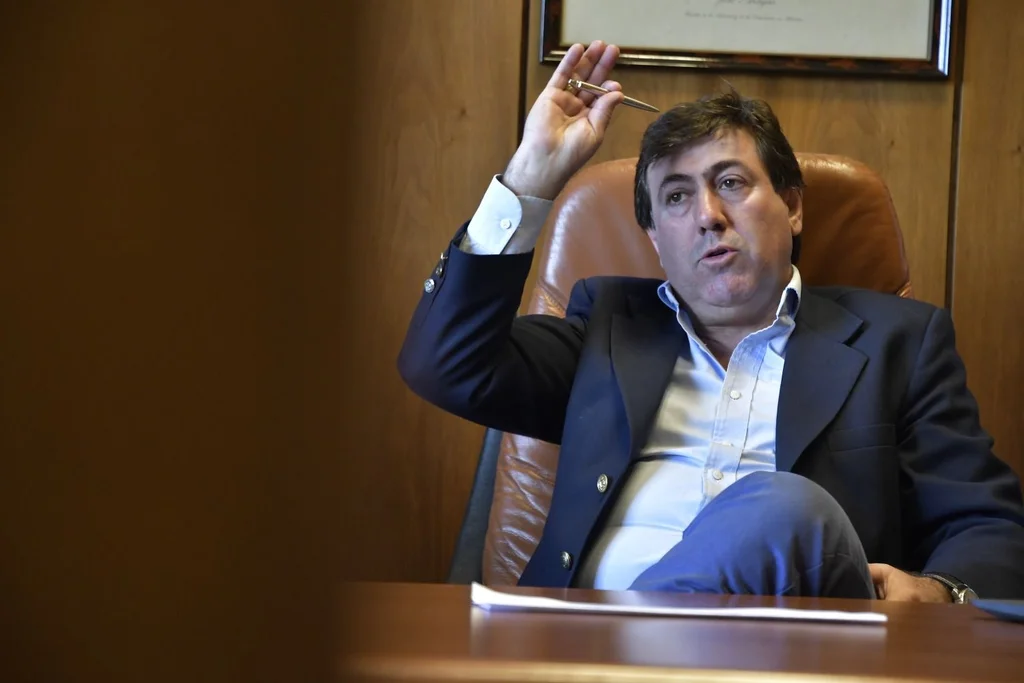
Diego Battiste
In March and days before the referendum for the Urgent Consideration law, propaganda in favor of Yes was placed on the torch of the La Teja refinery. What is that investigation?
That investigation is ongoing. The Board of Directors did not formally receive anything, it is in the hands of the company and union lawyers. We do not have a definition of this investigation, when we have it we will decide on it. There are workers who are separated from the position. From what I understand there are two who were in the place. In my opinion there will be no possibility that there is someone from inside Ancap who makes a specific complaint or who, knowing him, can say who he was. I don’t think it will ever be possible to find out who carried the torch. This is very simple: either it was people who are inside the company or it was people who, with proper authorization, filtered access and entered. In addition, it was people who entered the propaganda materials anticipated. This has logistics. I cannot say that they were officials, but it is clear to me that those who went knew exactly how it worked and how to access the torch. They certainly didn’t jump wires.
In November there was a million-dollar robbery at the La Teja refinery. It was striking that large volumes of cash were still being handled in times of electronic payments. What else is known about that robbery?
An investigation was launched. In Ancap, all the petty cash registers were suppressed except for this one. In the Board of Directors we did not know that there was that money. Supposedly that petty cash was for daily expenses that may arise and since they are sometimes sudden expenses it can be used. It shouldn’t have been that amount of money, it didn’t correspond. It was almost $3.5 million. Now that box has been removed. Now each of the suppliers, regardless of their track record, is going to have to receive a draft or they will have to be given a bill of exchange or whatever. There will be no more cash. The people who committed the crime were clear that there was money and that it was worth all the risk. It is under investigation where they entered. Hundreds of people from companies that contract with Ancap enter that place, in addition to officials. In addition, there was a situation where 18 of the 60 cameras were not working. What’s more, they knew that days later a police guard 222 was already entering, which had been stipulated a long time ago. The Court will investigate.
